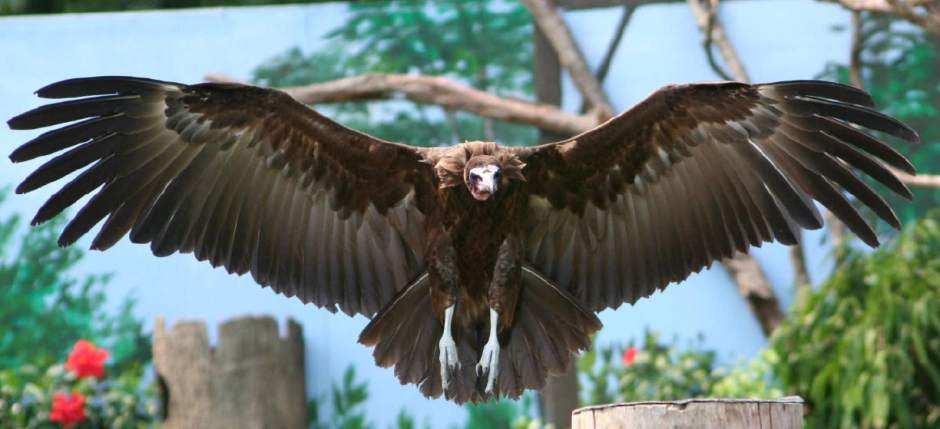National Aviary plays 'waiting game' with on-the-loose hooded vulture
Vultures have a reputation for patience.
The humans trying to recapture one may have to be more so.
National Aviary officials spent Friday awaiting the return of one of their endangered hooded vultures that flew the coop Thursday during an open-air show at the facility on Pittsburgh's North Side.
“It's really just a waiting game,” aviary spokeswoman Robin Weber said Friday afternoon.
The vulture, Kiume, was knocked off course by a gust of wind during one of the facility's daily open-air, free-flight shows. The bird ended up in the trees along Scotland Avenue and made several stops around the North Side before settling in for the night.
He's been in the same spot since then, Weber said. The bird wears a tracking device, and aviary crews have followed and kept an eye on the bird since his wrong turn.
Aviary officials noted that it's not unusual for the show birds to fly off during a show — it happens several times each summer. They are trained to come back, and they always have in the past, according to Weber. When Kiume does, he'll be put into a crate for transport back to the aviary.
She stressed he is neither dangerous nor unaccustomed to humans. Vultures feed on carrion, the decaying flesh of animals, and the aviary's bird performs daily for large groups of visitors.
Kiume — whose name is Swahili for male — has been at the aviary since 2007.
Weber asks that anyone who sees Kiume not approach him, to prevent the vulture from being startled.
BirdLife International, a conservation group, lists the hooded vulture as in danger of extinction.
The group categorizes the bird as “critically endangered,” estimating there are fewer than 200,000 in the wild. In the case of hooded vultures, the rapid population decline can be traced to several causes, including indirect poisoning from feeding on poisoned livestock meant to bait and kill other predators.
Research indicates the population has declined at least 83 percent over the past three generations of vultures — about 53 years, according to the conservation group.
Megan Guza is a Tribune-Review staff writer. Reach her at 412-380-8519 or mguza@tribweb.com.

